Filter by
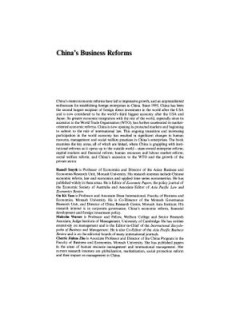
China's Business Reforms
China's recent economic reforms have led to impressive growth, and an unprecedented enthusiasm for establishing foreign enterprises in China. Since 1993, China has been the second largest recipient of foreign direct investment in the world and is now considered to be the world's third biggest economy. Its greater economic integration with the rest of the world, especially since its accession to…
- Edition
- -
- ISBN/ISSN
- 9780203537039
- Collation
- -
- Series Title
- -
- Call Number
- 337.51 CHI c
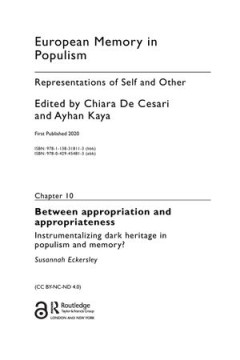
Chapter 10 Between appropriation and appropriateness
This chapter takes an interdisciplinary approach to the subject of memorialization and commemoration, protest and populism in relation to the performative enacting and official presentation of difficult history. It analyzes the various actors instrumentalizing the same dark heritage in different ways, by different means, and for different purposes, to draw conclusions about processes of coming …
- Edition
- -
- ISBN/ISSN
- 9781138318113
- Collation
- -
- Series Title
- -
- Call Number
- 320 ECK c
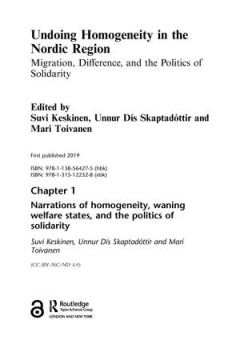
Chapter 1 Narrations of homogeneity, waning welfare states, and the politics …
This chapter introduces the book’s critical approach to the narratives of cultural homogeneity and social cohesion that are usually taken for granted in the understandings of societal security in the Nordic region. Through historical analyses, the contributions show how the idea of exceptional cultural homogeneity was developed through activities by social scientists, nationalist politicians,…
- Edition
- -
- ISBN/ISSN
- -
- Collation
- -
- Series Title
- -
- Call Number
- 300
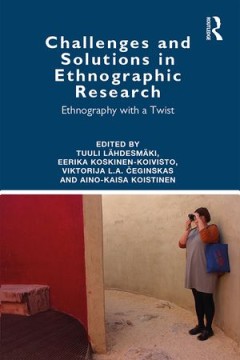
Challenges and Solutions in Ethnographic Research: Ethnography with a Twist
Challenges and Solutions in Ethnographic Research: Ethnography with a Twist seeks to rethink ethnography ‘outside the box’ of its previous tradition and to develop ethnographic methods by critically discussing the process, ethics, impact and knowledge production in ethnographic research. This interdisciplinary edited volume argues for a ‘twist’ that supports openness, courage, and creat…
- Edition
- -
- ISBN/ISSN
- 9781000093117
- Collation
- -
- Series Title
- -
- Call Number
- 305.8072 CHA c
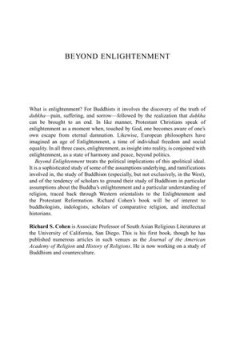
Beyond Enlightenment
The vast majority of books on Buddhism describe the Buddha using the word enlightened, rather than awakened. This bias has resulted in Buddhism becoming generally perceived as the eponymous religion of enlightenment. Beyond Enlightenment is a sophisticated study of some of the underlying assumptions involved in the study of Buddhism (especially, but not exclusively, in the West). It investigate…
- Edition
- -
- ISBN/ISSN
- 9780203098783
- Collation
- -
- Series Title
- -
- Call Number
- 306.6 COH b

Art, Research, Philosophy
Art, Research, Philosophy explores the emergent field of artistic research: art produced as a contribution to knowledge. As a new subject, it raises several questions: What is art-as-research? Don’t the requirements of research amount to an imposition on the artistic process that dilutes the power of art? How can something subjective become objective? What is the relationship between art and …
- Edition
- -
- ISBN/ISSN
- 9781317654827
- Collation
- -
- Series Title
- -
- Call Number
- 302.23 CAZ a
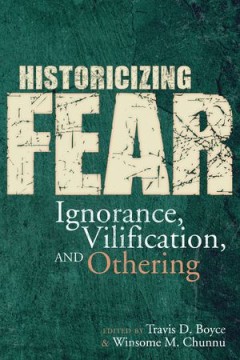
Historicizing Fear : Ignorance, Vilification, and Othering
Historicizing Fear is a historical interrogation of the use of fear as a tool to vilify and persecute groups and individuals from a global perspective, offering an unflinching look at racism, fearful framing, oppression, and marginalization across human history. The book examines fear and Othering from a historical context, providing a better understanding of how power and oppression are used i…
- Edition
- -
- ISBN/ISSN
- 9781646420025
- Collation
- -
- Series Title
- -
- Call Number
- 305.8 HIS
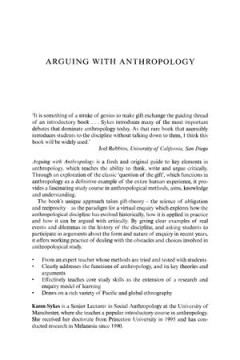
Arguing With Anthropology
Arguing with Anthropology is a fresh and wholly original guide to key elements in anthropology, which teaches the ability to think, write and argue critically. Using the classic 'question of the gift' as a master-issue for discussion, and drawing on a rich variety of Pacific and global ethnography, it provides a unique course in methods, aims, knowledge, and understanding. The book's highly ori…
- Edition
- -
- ISBN/ISSN
- 9780203491140
- Collation
- -
- Series Title
- -
- Call Number
- 301 SYK s
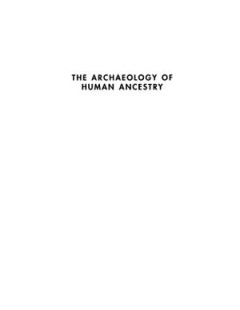
The Archaeology of Human Ancestry
Human social life is constrained and defined by our cognitive and emotional dispositions, which are the legacy of our foraging ancestors. But how difficult is it to reconstruct the social systems and cultural traditions of those ancestors? The Archaeology of Human Ancestry provides a stimulating and provocative answer, in which archaeologists and biological anthropologists set out and demonstra…
- Edition
- -
- ISBN/ISSN
- 9780203974131
- Collation
- -
- Series Title
- -
- Call Number
- 301 ARC a
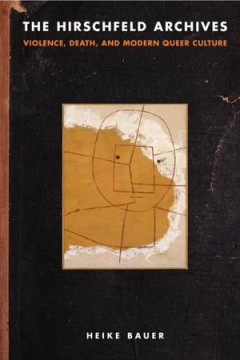
The Hirschfeld archives : violence, death, and modern queer culture
This work examines how death, suicide and violence shaped modern queer culture, arguing that negative experiences, as much as affirmative subculture formation, influenced the emergence of a collective sense of same-sex identity. Bauer looks for this history of violence in the work and reception of the influential sexologist Magnus Hirschfeld (1868-1935), and through Hirschfeld's work examines t…
- Edition
- -
- ISBN/ISSN
- 9781439914328
- Collation
- -
- Series Title
- Sexuality studies
- Call Number
- 306.76 BAU h
 Computer Science, Information & General Works
Computer Science, Information & General Works  Philosophy & Psychology
Philosophy & Psychology  Religion
Religion  Social Sciences
Social Sciences  Language
Language  Pure Science
Pure Science  Applied Sciences
Applied Sciences  Art & Recreation
Art & Recreation  Literature
Literature  History & Geography
History & Geography